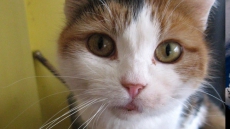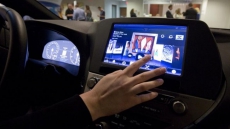Indian-American researchers from Rice University have created a touch-free system that uses a video camera to monitor the vital signs of patients just by looking at their faces.
The team of graduate student Mayank Kumar and professors Ashok Veeraraghavan and Ashutosh Sabharwal created the system that will let doctors diagnose patients from a distance with special attention paid to those in low-resource settings.
The technique, called DistancePPG, can measure a patient's pulse and breathing just by analysing the changes in one's skin colour over time.
Where other camera-based systems have been challenged by low-light conditions, dark skin tones and movement, DistancePPG relies on algorithms that correct for those variables.
"DistancePPG will be particularly helpful to monitor premature infants for whom blood pressure cuffs or wired probes can pose a threat," said Mayank Kumar, the project's lead graduate researcher.
The wires monitor babies' pulses and heart rate.
"The wires are not a problem. The problem is that the babies would roll or their mothers need to take care of them and the wires are taken off and put back on," Mayank Kumar said.
That could potentially damage the infants' delicate skin. The existing techniques worked fine in bright rooms but there were three challenges.
The first was the technique's difficulty in detecting colour change in darker skin tones. Second, the light was not always bright enough. The third and perhaps hardest problem was that patients sometimes move.
The Rice team solved these challenges by adding a method to average skin-colour change signals from different areas of the face and an algorithm to track a subject's nose, eyes, mouth and whole face.
"Our key finding was that the strength of the skin-colour change signal is different in different regions of the face, so we developed a weighted-averaging algorithm," Mayank Kumar explained.
It improved the accuracy of derived vital signs, rapidly expanding the scope, viability, reach and utility of camera-based vital-sign monitoring.
By incorporating tracking to compensate for movement -- even a smile -- DistancePPG perceived a pulse rate to within one beat per minute, even for diverse skin tones under varied lighting conditions.
According to researchers, they expect the software to find its way to mobile phones, tablets and computers so people can reliably measure their own vital signs whenever and wherever they choose.
The research appeared in the journal Biomedical Optics Express.





